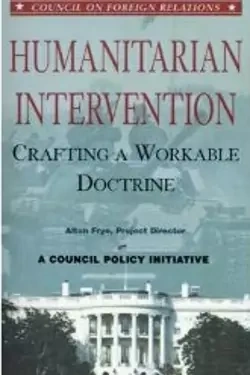
Humanitarian Intervention
Crafting a Workable Doctrine

- Report
Overview
Americans have spent much time in the last ten years arguing whether to intervene in places like Kosovo, Rwanda, and East Timor—and there will almost certainly be no policy consensus in future humanitarian crises of that nature, according to this report. Instead of phony consensus, this Council Policy Initiative lays out three separate arguments that would support distinct policy emphases on humanitarian intervention.
The conflict in Kosovo in particular raised profound questions about when and where the United States and other international actors would use military force to curb massive abuses of human rights. It presented grave issues regarding the authority of the United Nations to make the essential decisions for or against such intervention on the territory of a member state.
More on:
Accordingly, the Council examined whether it would be possible to frame a workable “doctrine” to guide policy through the range of humanitarian crises that are bound to unfold in the twenty-first century. To this end, three U.S. experts with widely divergent views on the use of military force for humanitarian aims were each asked to develop an option. Presented as memoranda that cabinet officers might offer to a U.S. president, these proposals advance: the moral imperative to intervene against large-scale assaults on innocent civilians (by Physicians for Human Rights’ Holly J. Burkhalter as secretary of state); the strategic case to refrain from intervention except in the extreme circumstance of genocide (by former Deputy Undersecretary of Defense Dov S. Zakheim as secretary of defense); and the political prerequisite to balance moral and strategic claims on American power (by U.S. Army Colonel Stanley McChrystal as chairman of the Joint Chiefs of Staff). An introductory memo (by former Deputy Undersecretary of State Arnold Kanter as national security adviser) summarizes the three arguments and provides critical background and context to help the president decide which option he wishes to adopt.
More on:
 Online Store
Online Store
